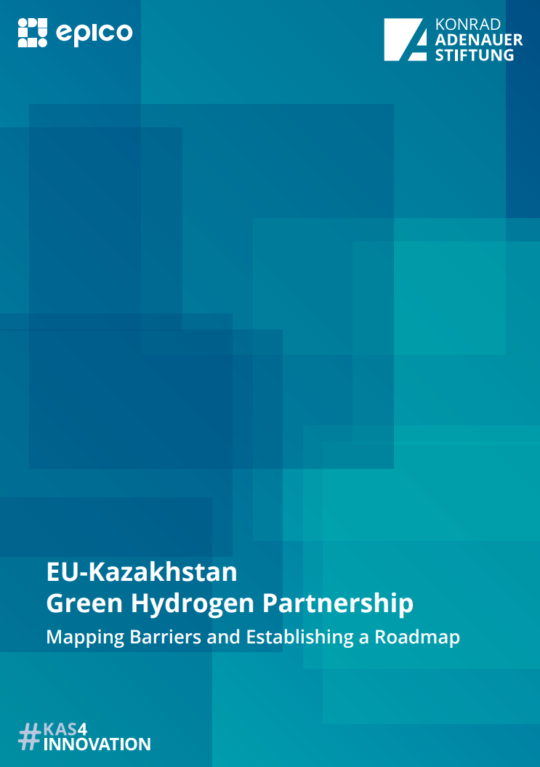EPICO KlimaInnovation and the Konrad Adenauer Stiftung published a policy brief on an EU-Kazakhstan green hydrogen partnership, "EU-Kazakhstan Green Hydrogen Partnership: Mapping Barriers and Establishing a Roadmap". The policy brief suggests three key actions for Kazakhstan to play an important role in the EU's future energy security and decarbonisation.
Kazakhstan has acquired a new geopolitical significance for Europe following Russia's unlawful invasion of Ukraine. Enhanced cooperation between the EU and Kazakhstan could support the decarbonisation of traded goods to the EU, and potentially trade in green hydrogen (or derivatives). Astana announced plans to develop a hydrogen industry in the country, aiming both at domestic decarbonisation and future exports. The country has significant potential for developing renewable hydrogen, due to its abundant solar and wind resources.
Yet, significant obstacles remain. These include the lack of incentives to decarbonise the Kazakh economy, and the absence of local R&D&D and international transport infrastructure. Green hydrogen production also requires fresh water, which is becoming increasingly scarce in the region.
Three key actions for the EU to support the deployment of a long-term green hydrogen partnership with Kazakhstan are suggested in the policy brief:
- Design an inclusive regional sectorial cooperation.
- Launch at EU-Kazakhstan Hydrogen Incubator.
- Explore infrastructure development options.


